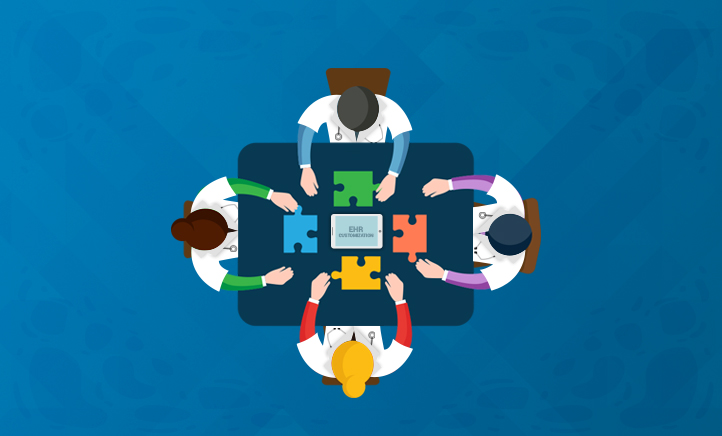Oh EHR, how can we love thee?

According to the 2018 Black Book survey, “thirty percent of practices with over 11 clinicians expect to replace their current EHR system by 2021 for EHR customization issues.” Why is that?
Because current systems do not fit seamlessly into the working environments of most practices. I have been writing about the need for an adaptable malleable system for several years.
EHR customization is important to providers. A health care provider only has a certain amount of time in a day to see their patients. Spending that valuable time dealing with a non intuitive system that is hard to use and understand would be unduly stressful on a provider, and results in less time spend with the patient, leading to possible misdiagnosis due to inadequate pertinent information. Patients lose faith in their providers as a result of the lack of meaningful time spent discussing the problem.
Rigid systems are bad for the bottomline. Innovative or efficient workflows or business models can become hard to implement. Hard to use out-of-the-box systems can also be a cause of frustration for the non clinical staff members in a provider’s office. A slow down in workflow, drop in morale, and increased frustration are byproducts. Any unique changes that a particular organization has developed to have better outcomes or productivity is abandoned to a system that dictates how everyone should practice.
The problem, while recognized over and over again, still persists. Here is another attempt to fix the periphery, “designing unique EHR interfaces”
What are the obstacles towards customized ehr software? High cost and time taken for implementation. Most small and larger practices worry about the cost that would be required to implement a new system and to train staff how to use it. They also worry about the time it would take for implementation.
So why is EHR customization expensive? Because we are trying to customize systems that were not meant to be customized. Most EHR systems (SaaS ) are standardized to be scalable. EHR customization is antithetical to their very existence.
Time to recognize innovative eHealth companies that understands the requirement for distinct and particular nature of individual practices and organizations that deliver care. They are out there. blueEHR, built on an open philosophy and customizability at its very core, is one of them.
Investing in a custom EHR might cause a small decrease in workflow and revenue in the short term, but in the long term, it is absolutely useful and is also a profitable investment. According to Black Book, “91 percent of patients under 50 years old are gravitated toward digitally based practices, particularly those with advanced features, connectivity with other providers and comprehensive portals which give them easy access to manage their health via phones and devices.” EHR is the technology of the future, and it would be-hoove providers to have a system that works for them rather than a system that they have to work with.